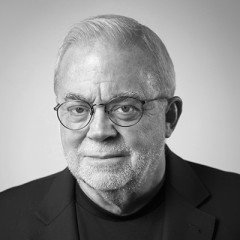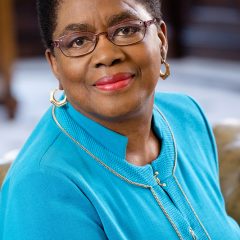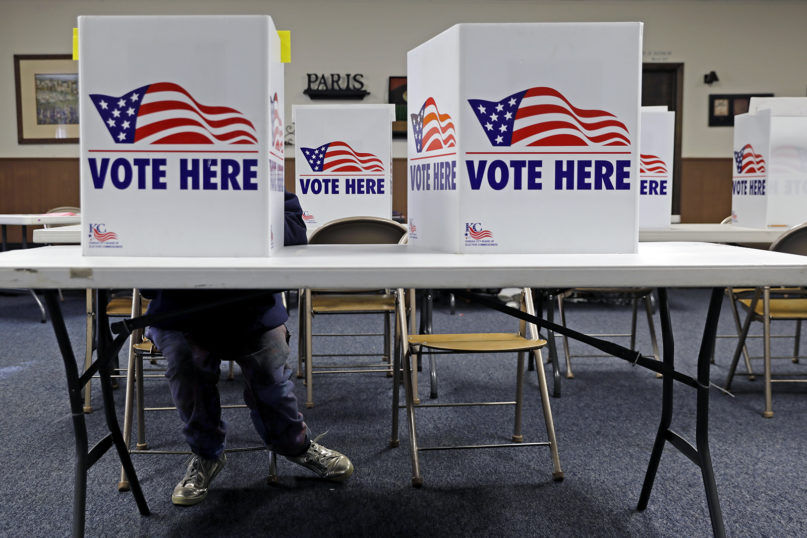(RNS) — We believe all human beings are made in the “Imago Dei,” the image and likeness of God — it’s a core tenet of ours and many other faiths. So any strategy that would negate people’s votes because of the color of their skin is not just a partisan tactic, but rather a denial of their Imago Dei, a theological, biblical and spiritual offense to God. Protecting the right to vote affirms the divine imprint and inherent value of all of God’s children.
At a 2017 interfaith gathering, the two of us took these deep discussions on how voter suppression threatens the Imago Dei within each of us and our neighbors and turned those ideas into the seeds of a campaign. The idea has grown over the years, was piloted in the 2018 election, and now is in full swing in seven pivotal states in the 2020 presidential election — the most important election in both of our lives. Let’s call it “2020 Souls to the Polls.”
In 2016 and 2018, voters faced extensive efforts that made voting more difficult, particularly voters of color and those who are poor. These voter suppression efforts happened after GOP state gains during the Obama administration and, perhaps most significantly, as a result of the Supreme Court’s 2013 gutting of a key provision of the groundbreaking Voting Rights Act of 1965, which required certain states with a history of discrimination to seek preclearance to change voting procedures.
Between those two factors — the 2013 Supreme Court decision to diminish voter protections and the Republican takeovers in many states — 23 states, including some key battlegrounds, put in place new voter restrictions in advance of the 2016 election. By the 2018 midterms, that number had risen to 33 states. These restrictions included:
- laws that eliminated polling places or moved them to less accessible locations, often on Election Day and without notice
- reduced polling hours
- tightened voter-ID requirements
- “purged” voter rolls and
- reduced early voting and Sunday voting, which are popular among voters in black churches
Some groups also waged state-based disinformation campaigns, advertising incorrect election dates, fake addresses for polling places, and even veiled threats of voter intimidation.
In 2016, in ruling against a particularly egregious voting law in North Carolina, a federal court said certain provisions of the law “target African Americans with almost surgical precision.” The court added, “With race data in hand, the legislature amended the bill to exclude many of the alternative photo IDs used by African Americans” and “retained only the kinds of IDs that white North Carolinians were more likely to possess.”
Those are the facts, and the facts reveal that the Republican Party is complicit in efforts to deny the image of God in black and brown people, including the black and brown body of Christ in America.
So here is the challenge we are offering: Regardless of how Christians vote by their biblical examination on the issues, all Christians must stand and speak out against voter suppression — an offense to the image of God and the democratic rights of citizenship.
Here’s some very good news: A broad coalition of Christian denominational and church leaders, led by the leaders of many black denominations, has been joined by many leaders of predominately white and multicultural churches in a new letter just sent to every member of Congress and every senator from both parties.
The letter says, in part:
“We believe that each person, and therefore each voter, is made in the image of God and that any effort to discourage or suppress their vote assaults their human dignity and undermines our democracy. The right to vote and people’s ability to exercise that right is fundamental to the health and integrity of our democracy and country. As Christian leaders who represent and lead a broad cross-section of the church across the country, we also believe that voting is a sacred right and commitment, particularly given our nation’s long struggle to extend the right to vote to every eligible citizen regardless of factors such as race and gender.”
This is an inspiring breakthrough and theological pushback to expected voter suppression. Not only is it signed by many African American denominational leaders, but also leaders of the National Council of Churches and the leaders of the National Association of Evangelicals — something that rarely happens. The signers range from the denominational leaders of the Episcopal Church to the Christian Reformed Church to the African Methodist Episcopal Church. These leaders have different theological views and politically diverse constituencies. But together, we are standing up and speaking out for protecting our democracy and the image of God in each voter. This letter is the first public sign of a theological and political movement against more voter suppression in America — the beginning of a commitment to bring and protect souls at the polls.
The fact of the matter is that there will always be those who seek to utilize the unjust tools of voter suppression for partisan objectives. But as Christians committed to justice and living in a representative democracy, it’s hard to argue against wanting as many people as possible to participate in self-government by exercising their right to vote — no matter how they vote. We must protect this most basic of rights for all our brothers and sisters, and that work must start well before any ballots are cast.
Out of that interfaith gathering many years ago, and many more conversations since, Sojourners and the National African American Clergy Network started a new campaign called Lawyers and Collars and TurnOut Sunday, where pastors and local congregations work alongside lawyers, prior to and on election days, to protect vulnerable voters. These church-led efforts to help register voters, educate voters, turn out voters and protect voters exercising their hard-fought-for rights — all in nonpartisan ways — are rooted in seeing every citizen as made in God’s image and likeness.
And now the COVID-19 pandemic makes the cause of ensuring a free, fair and safe election even more imperative.

Jim Wallis. Photo courtesy of Jim Wallis
Fortunately, there are many things we can start doing right now to ensure that November’s election is free, fair and safe for everyone who wishes to cast a vote. We can work toward expanding voter registration, in-person early voting, no-excuse absentee balloting, voter education and safe in-person “souls to the polls” voting on Election Day. Work on approving and implementing these policies must begin now! Otherwise, there’s a very real chance they will not be ready in time for November’s elections to be free, fair and safe.
We both have been very moved by the energy of black clergy on voter protection work, even as they are already dealing with the disproportionate health impacts of the coronavirus in their communities and getting their communities fully counted in the 2020 Census. Zoom calls have replaced our prayer breakfasts, but we are already drawing high numbers of black pastors in key states for these virtual convenings.

The Rev. Barbara Williams-Skinner. Photo by Doug Sanford
It is the responsibility of faith leaders of all types of communities to protect the votes of all people. Why? Because this is a theological issue, a reaffirmation that each of us is created in the image of God and deserves full citizenship rights. This letter is a first step for all Christian faith leaders to call for a free, fair and safe election and to demand that our legislative leaders support that. So help us God.
(The Rev. Jim Wallis is president of Sojourners. His new book Christ in Crisis: Why We Need to Reclaim Jesus is available now. Follow Jim on Twitter @JimWallis. Barbara Williams-Skinner is president and co-founder of the Skinner Leadership Institute and co-convener of the National African American Clergy Network. The views expressed in this commentary do not necessarily reflect those of Religion News Service.)





